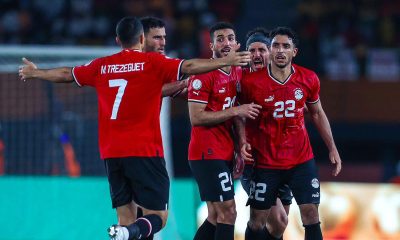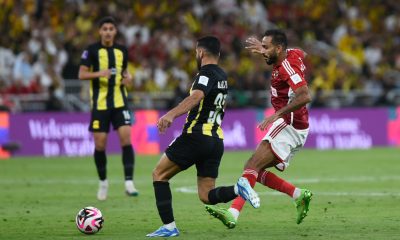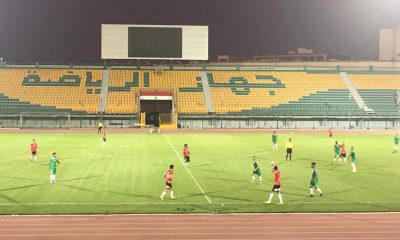This post was written by Adam Moustafa and originally published on Just Football on January 25th, 2012.
One year ago today, the revolution began.
Prior to the Egyptian revolution, football was one of the main sources of bliss for Egyptians. The past few years were deemed the golden age of Egyptian football with the national team winning the last three African Cups of Nations while also putting in outstanding performances against the likes of Brazil and Italy. Whenever kickoff time neared, Egyptians around the world would huddle around televisions sets with their flags in hand or painted on their faces. It was always a festive mood after victories. Egyptians would quickly flood the streets singing and dancing to the sounds of tablas (African drums) and non-stop car honks throughout the night.
A taste of these celebrations, after beating North African rivals Algeria 4-0 in 2010 (excuse the Arabic cursing).
Football was always integrated with politics in Egypt. After each of Egypt’s triumphs in the Africa Cup of Nations, Hosni Mubarak would congratulate each player and personally place medallions around their necks. Other politicians (including Mubarak’s sons) would also tie themselves with the sport by speaking through media outlets or occasionally showing up to the Cairo international stadium to watch a match. These were just a few of cheap tactics used by the previous regime to gain the blind support of some Egyptians.
The patronage that stemmed in the past decade over Egyptian football was immense, and dangerous. When Egypt and Algeria were going head-to-head to qualify for South Africa 2010, Mubarak’s media and even some footballers were a focal point in almost instigating a war between the two nations. Amr Zaki rejected a move to Portsmouth because of this, stating “no way could I play for Portsmouth with an Algerian in their ranks” referring to the presence of Nader Belhadj.
The revolts against Mubarak began to build serious momentum on January 25th. The Egyptian Premier League was then suspended, followed by the cancellation of the Egyptian Cup and any scheduled international friendlies. Oddly enough one of the cancelled friendlies was against the United States, who at the time coached by recently appointed Egypt head coach Bob Bradley.
Ahly and Zamalek ultras were constantly organising protests and working together once the revolution begun. Enemies in the football stadium became allies in Tahrir Square. These fans were extremely disappointed that most of the players from the clubs they supported never joined them in the uprisings against Mubarak. In fact, plenty iconic names in Egyptian football were quick to defend the under-fire president including Egypt’s head coach Hassan Shehata.
This led Ahly fans to direct a banner to their own club which read: “Wherever you went, we went. When we revolted, we couldn’t find you.”
One of the first professional matches after the “completion of the Egyptian revolution” was Zamalek against Tunisian Club Africain in the African Champions League. Hundreds of angry fans invaded the pitch after the linesman flagged a last minute equalizing goal scored by Zamalek as offside. Tunisian players and the referee were attacked and eventually cancelled the remaining minutes of the game.
Plenty of similar incidents occurred and rumors quickly spread that the EFA (Egyptian Football Association) were considering cancelling the 2010/2011 season due to security concerns. While some claim that the trouble was the result of people abusing their new-found freedom, others believed that the supporters of the previous regime were igniting the havoc to diminish the revolution’s image. Nevertheless Egyptian football gained a new sense of purification after the revolution.
The following clip is of Ahly fans showing their unconditional love towards their club with a hint of the revolution in the stadium (note the Algerian, Libyan and even Japanese flags). At the end of the video the commentator is proud to say, “This is Egypt.”
Zamalek fans have also continued to show their undying support for their club even with having Hassan Shehata as their new head coach, who later claimed to have supported the revolution. Most fans didn’t believe those claims but they’ve managed to put aside his political views. This year Zamalek fans celebrated their club’s centurion in a match against Atletico Madrid.
The entire Atletico Madrid staff were stunned by the unique celebrations of the Zamalek fans and were quick to record the scenes on their camera phones. Even though they were trailing 4-1, the celebrations were ongoing. Gregorio Manzano, head coach of Atletico at the time, said that he “had never seen anything like it in his life.”
Around the beginning of December 2011, prior to the countries’ first democratic elections, further political unrest broke out in Egypt between protestors and the military. The league was on break at the time, but regardless of the problems in the country, the Egyptian Premier league resumed as scheduled. A young Egyptian was killed in Tahrir Square that month, an Ahly ultras member, 19-year-old Mohamed Mostafa. A truly touching sight came watching Ahly fans honour Mohamed with banners of him in the stadium, during a league match against Misr El Makasa. Even Portuguese boss, Manuel Jose wore a t-shirt in remembrance of Mohamed throughout the match.
There have been a few other instances in the past year where security in the Egyptian top tier has been exposed. On New Year’s Eve, Ghazl El Mahalla hosted Al Ahly, but the match was called off early in the 2nd half. Mahalla, who already look bound for relegation, surprisingly had a 2-goal advantage against the Egyptian champs, Ahly pulled one back just before halftime. A few minutes into the 2nd half, a controversial own-goal scored by a Mahalla defender deceived the home fans. Somehow the ball slivered under the mesh and made it look like it never hit the back of the net.
Credit to the Egyptian referee who correctly awarded the equalizer, but due to the Mahalla players’ protest, the fans believed they were being robbed. Mahalla fans ended up storming the pitch and the referee had no other choice but to end the match. Again there were murmurs that the Egyptian League may be cancelled shortly after, but despite all the havoc, the show goes on.
The Egyptian national team is scheduled to play a friendly against North African rivals Tunisia in a friendly on February 10th in Cairo. North African derbies are usually extremely intense but this one is strictly to commemorate the anniversaries of their respected revolutions. Hence, a much more festive atmosphere is expected.
Football in Egypt will slowly but surely regain its stability and will continue to flourish, despite being yellow-carded by the revolution.
(photo credit: thecoldwhisper under Flickr Creative Commons licence)
Co-Founder, Chief Technology & Content Officer of KingFut.com. Goal with KingFut is to scout and promote Egyptian talent – both local and abroad – who don’t receive the credit and coverage they deserve. Graduated from the University of Toronto with a B.A.Sc in Electrical Engineering and have previously featured on BBC World Service, 5 Live, Chelsea TV & more.

Latest
-
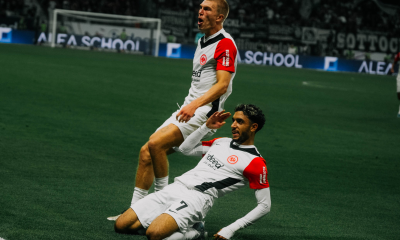

News
/ 11 hours agoMarmoush strikes again in Frankfurt’s win over Mönchengladbach
Omar Marmoush is not showing any signs of slowing down after scoring again in...
By Saher Ahmed -
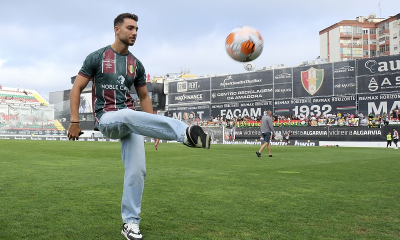

News
/ 11 hours agoBilal Mazhar makes Estrela debut, Kouka features for Rio Ave
Egypt international Bilal Mazhar has made his debut for Portuguese outfit Estrela da Amadora...
By Seif Soliman -
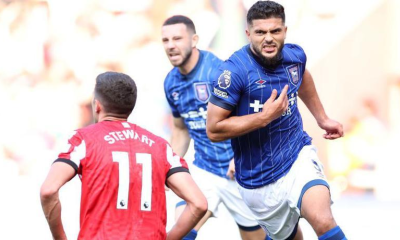

News
/ 12 hours agoSam Morsy ‘delighted’ with first Premier League goal
Sam Morsy has revealed his delight following his late dramatic equaliser against Southampton on...
By Seif Soliman -


Beyond Borders
/ 13 hours agoSteven Gerrard: I wish we had faced Al Nassr under Castro
Englishman Steven Gerrard, head coach of Al-Ettifaq, expressed his frustration following the team’s 3-0...
By Saher Ahmed
